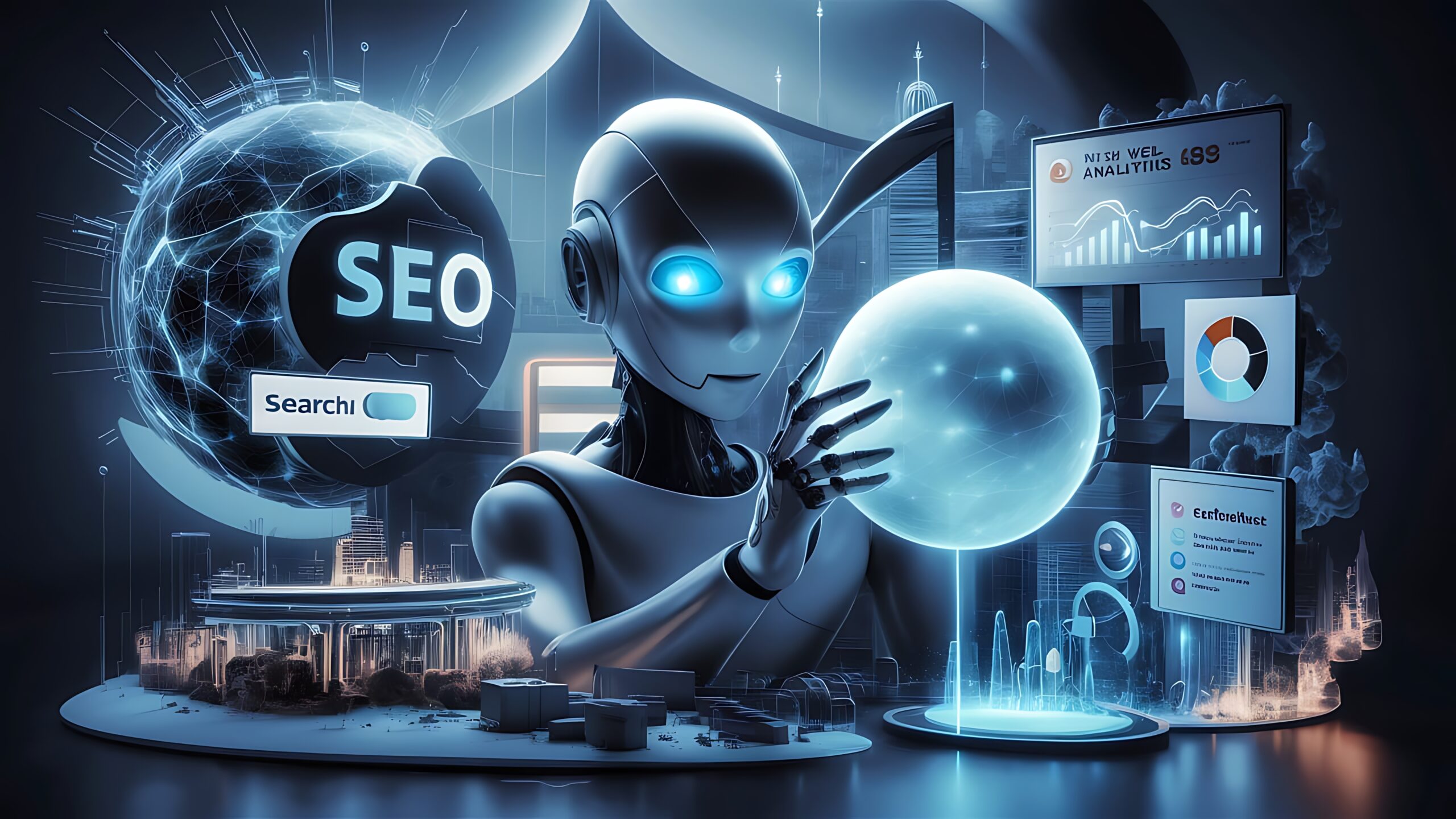Artificial Intelligence (AI) has been revolutionising various industries, and search engine optimization (SEO) is no exception. As AI continues to advance, it’s transforming how search engines work and, consequently, how SEO professionals approach optimization strategies. In this blog, we’ll explore the key ways AI impacts SEO, how it influences search algorithms, and what businesses need to do to stay ahead in the ever-evolving digital landscape.
1. AI and Search Algorithms
AI has fundamentally altered how search engines like Google understand and rank content. The introduction of Google’s AI-powered algorithms, such as RankBrain and BERT (Bidirectional Encoder Representations from Transformers), marked significant shifts in search ranking methodologies.
- RankBrain: Introduced in 2015, RankBrain is a machine learning component of Google’s algorithm that helps process search queries and understand user intent. It allows Google to provide more relevant search results by interpreting ambiguous or long-tail queries
- BERT: Launched in 2019, BERT is designed to improve Google’s understanding of natural language. It helps the search engine comprehend the context of words in a query rather than just processing them individually, making it easier for users to find more accurate results, even for complex queries.
AI-driven search algorithms mean that the days of simply stuffing keywords into content are long gone. SEO professionals now need to focus on content quality, intent matching, and user experience to rank higher in search results.
2. AI in Content Creation and Optimization
AI-powered tools are also influencing how SEO professionals create and optimise content. These tools can analyse top-performing content, recommend keywords, and even generate AI-written articles. Some key areas where AI is impacting content creation include:
- Topic Research: AI tools like Frase and MarketMuse analyse competitors’ content and suggest related topics, keywords, and questions that users are likely searching for.
- Content Personalization: AI allows for personalised content suggestions based on user behaviour and preferences. Chatbots, virtual assistants, and content recommendation engines are all examples of how AI is used to provide personalised user experiences, increasing engagement and reducing bounce rates.
- SEO Tools: AI-based platforms like Surfer SEO and Clearscope suggest keyword usage and on-page SEO improvements. These tools analyse top-performing pages and recommend optimization strategies tailored to both search engines and users.
3. Voice Search and AI
With the rise of voice search, driven by AI-powered virtual assistants like Siri, Alexa, and Google Assistant, optimising for voice search has become a key part of SEO strategies. Voice search queries are typically longer and more conversational than text-based searches, which means SEO professionals must focus on natural language processing and long-tail keywords.
Voice search optimization requires businesses to:
- Target conversational phrases.
- Create FAQ sections.
- Optimize for local searches, as many voice searches are location-specific.
4. AI and User Experience (UX)
Google’s Core Web Vitals and page experience updates are directly influenced by AI and machine learning. AI analyzes user behavior, such as click-through rates, time spent on page, and bounce rates, to evaluate the relevance and quality of a website. If AI detects poor user experience metrics, a website’s rankings could drop.
To improve SEO through user experience, businesses should focus on:
- Page Load Speed: Slow pages lead to higher bounce rates, which can negatively impact SEO.
- Mobile Optimization: AI monitors how users interact with sites on different devices. Websites that aren’t mobile-friendly risk being penalised.
- Intuitive Navigation: Websites must be easy to navigate to ensure a positive user experience, which in turn can improve rankings.
5. AI for Predictive SEO
Predictive SEO is an emerging trend where AI anticipates future search trends based on historical data, search behaviour, and user patterns. AI tools can forecast which keywords, content types, or topics are likely to trend, helping businesses stay ahead of competitors by creating content before a trend fully emerges.
Tools like BrightEdge and SEO Surfer use AI to predict content opportunities, ensuring that websites are always optimised for current and future search trends.
6. Automated SEO Tasks
AI is automating many routine SEO tasks, freeing up time for professionals to focus on strategy. Tools such as Moz, SEMrush, and Ahrefs use AI to automate keyword research, backlink analysis, and competitor tracking. Additionally, AI-based tools like PageSpeed Insights help monitor and improve website performance, offering insights into potential SEO improvements without human intervention.
How to Stay Ahead with AI in SEO
To leverage AI for SEO success, businesses should:
- Focus on high-quality, user-centric content that aligns with search intent.
- Optimise for voice search by targeting natural language queries.
- Invest in AI-based tools for content optimization, predictive analytics, and technical SEO.
- Ensure their website offers a seamless user experience by improving mobile optimization, load times, and navigation.
Conclusion
The integration of AI into SEO is no longer optional; it’s a necessity for staying competitive in the digital marketplace. As AI continues to evolve, businesses need to adapt their SEO strategies to focus on user intent, content quality, and experience. By utilizing AI-driven tools and focusing on personalization, predictive analysis, and voice search optimization, businesses can future-proof their SEO strategies and maintain visibility in search rankings.







